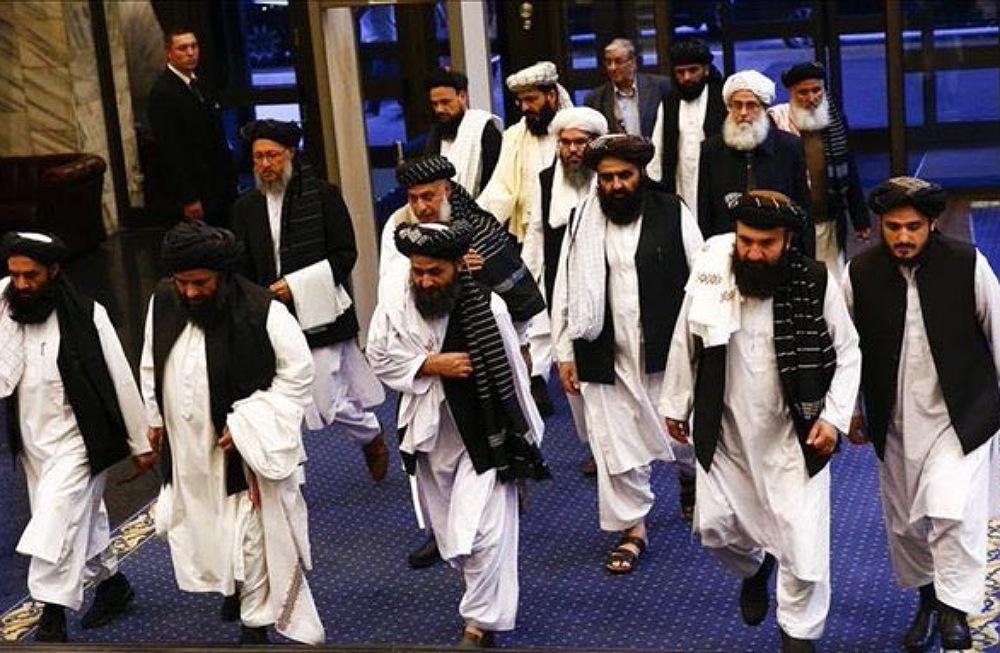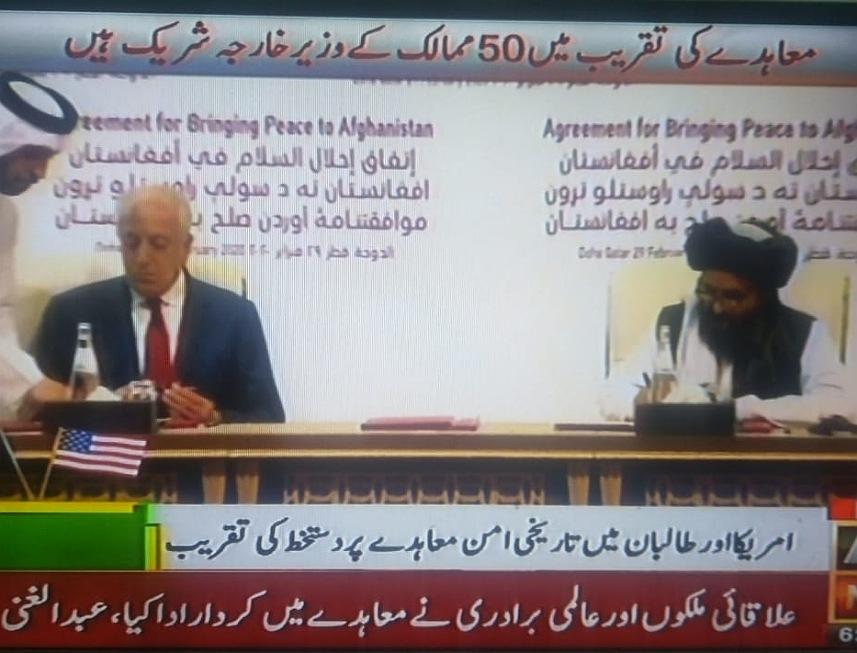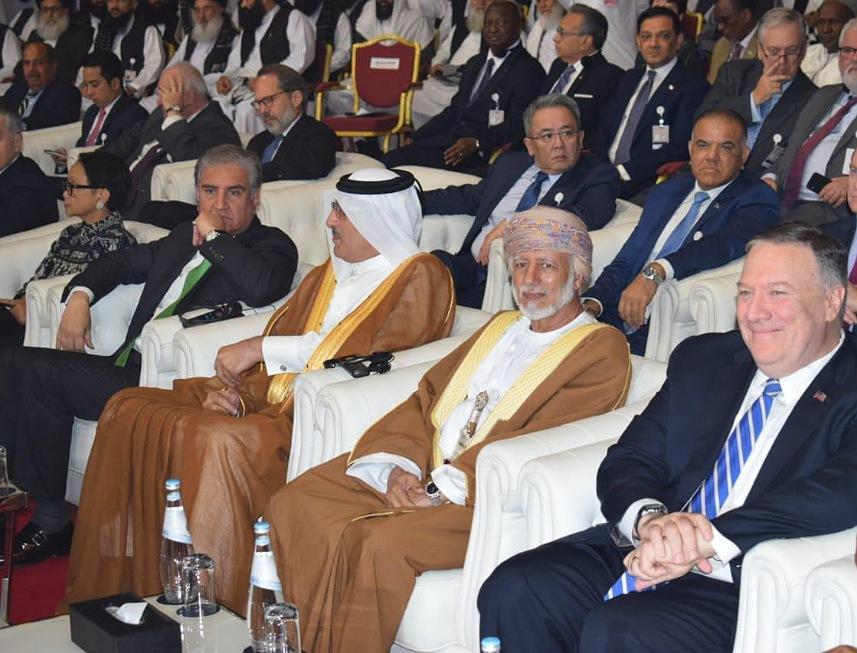The United States Signs Peace Deal With Afghanistan: Will The War Finally End?

The United States of America today, signed a peace deal with Afghanistan to withdraw all forces within 14 months if Taliban keeps its words and makes no future acts of terrorism. Permanent ceasefire will be implemented within 30 days and Taliban prisoners will be freed.
The war between US troops and the Afghanistan people has lasted for about 19 years. Pakistan was said to have aided the signing of the deal. The US Secretary of State supervised the signing. After the deal was signed, the Taliban thanked Pakistan for her contribution.
The head of the Afghanistan Qatar, Abdul Baradar expressed his gratitude to all the countries that helped in the peace process. He also said he hopes that they will take part in the reconstruction of the economy.
Image source: Twitter
Who Are the Taliban?
According to Wikipedia, The Taliban (Pashto: طالبان, ṭālibān “students”) or Taleban, who refer to themselves as the Islamic Emirate of Afghanistan (IEA), are a Sunni Islamic fundamentalist political movement and military organization in Afghanistan currently waging war (an insurgency, or jihad) within that country. Since 2016, the Taliban’s leader is Mawlawi Hibatullah Akhundzada.
From 1996 to 2001, the Taliban held power over roughly three quarters of Afghanistan, and enforced there a strict interpretation of Sharia, or Islamic law. The Taliban emerged in 1994 as one of the prominent factions in the Afghan Civil War and largely consisted of students (talib) from the Pashtun areas of eastern and southern Afghanistan who had been educated in traditional Islamic schools, and fought during the Soviet–Afghan War. Under the leadership of Mohammed Omar, the movement spread throughout most of Afghanistan, sequestering power from the Mujahideen warlords. The totalitarian Islamic Emirate of Afghanistan was established in 1996 and the Afghan capital was transferred to Kandahar. It held control of most of the country until being overthrown after the American-led invasion of Afghanistan in December 2001 following the September 11 attacks. At its peak, formal diplomatic recognition of the Taliban’s government was acknowledged by only three nations: Pakistan, Saudi Arabia, and the United Arab Emirates. The group later regrouped as an insurgency movement to fight the American-backed Karzai administration and the NATO-led International Security Assistance Force (ISAF) in the War in Afghanistan.
The Taliban have been condemned internationally for the harsh enforcement of their interpretation of Islamic Sharia law, which has resulted in the brutal treatment of many Afghans, especially women. During their rule from 1996 to 2001, the Taliban and their allies committed massacres against Afghan civilians, denied UN food supplies to 160,000 starving civilians and conducted a policy of scorched earth, burning vast areas of fertile land and destroying ten of thousands of homes. According to the United Nations, the Taliban and their allies were responsible for 76% of Afghan civilian casualties in 2010, 80% in 2011, and 80% in 2012. Taliban has also engaged in cultural genocide, destroying numerous monuments including the famous 1500-year old Buddhas of Bamiyan.
The Taliban’s ideology has been described as combining an “innovative” form of sharia Islamic law based on Deobandi fundamentalism and the militant Islamism and Salafi jihadism of Osama Bin Laden with Pashtun social and cultural norms known as Pashtunwali, as most Taliban are Pashtun tribesmen.
The Pakistani Inter-Services Intelligence and military are widely alleged by the international community and the Afghan government to have provided support to the Taliban during their founding and time in power, and of continuing to support the Taliban during the insurgency. Pakistan states that it dropped all support for the group after the September 11 attacks. In 2001, reportedly 2,500 Arabs under command of Al-Qaeda leader Osama bin Laden fought for the Taliban.
Image source: Twitter
The USA and Pakistans’ interest in the Taliban and Afghanistan
Although not totally selfless, Pakistans’ contribution is commendable and shows its burning desire for global peace. A peaceful Afghanistan would indirectly mean a peaceful Pakistan, both countries being neighbors who are very alike culturally and practice the same religion. Afghanistan migration to Pakistan is also very high as even escaped leaders of the Taliban are said to be living in Pakistan, considering it a safe haven.
There is a question of motives in Pakistan’s interest in the group which it had previously renounced support with. It is true that the Taliban is not a terrorist group but the question is, will the war end? Will Pakistan be satisfied if the Taliban takes over the government of the whole country?
The action of the US government also raises some questions. The war between the US and Afghanistan has lasted for over 19 years, Barack Obama attempted to sign a peace deal during his tenure but it did not work out because of various things that happened. It is worthy to note that the USA 2020 elections are in November and a peace deal is an admirable thing to do. The Trump administration will definitely receive a pat on the back for bringing peace to a nation that has been at war for the past 40 years.
Image source: Twitter
Conclusion
The people of Afghanistan have suffered from wars and terrorism for decades. Children were born in war and many witnessed the war into adulthood. Pakistan and all other countries that contributed to the signing of the peace deal are to be commended. The decision of the United States to gradually withdraw its troops over the space of 14 months is also a very wise one.
The people of Afghanistan can enjoy peace in their nation with the horrors of war now behind them. The reconstruction of the country might take some time but soon the world would stop viewing Pakistan as a hub for terrorists and a place of strife and war. We wish Afghanistan good luck in making a peaceful home for its citizens.
God bless Afghanistan!
She's a beauty and an exquisite lady who enjoys the high life in writing and poetry. Her writing style and prowess is innovative and focuses on the feminine perspective, bringing nothing but wholesome gratification to the African, Afrocentric and Afro-American women at large




